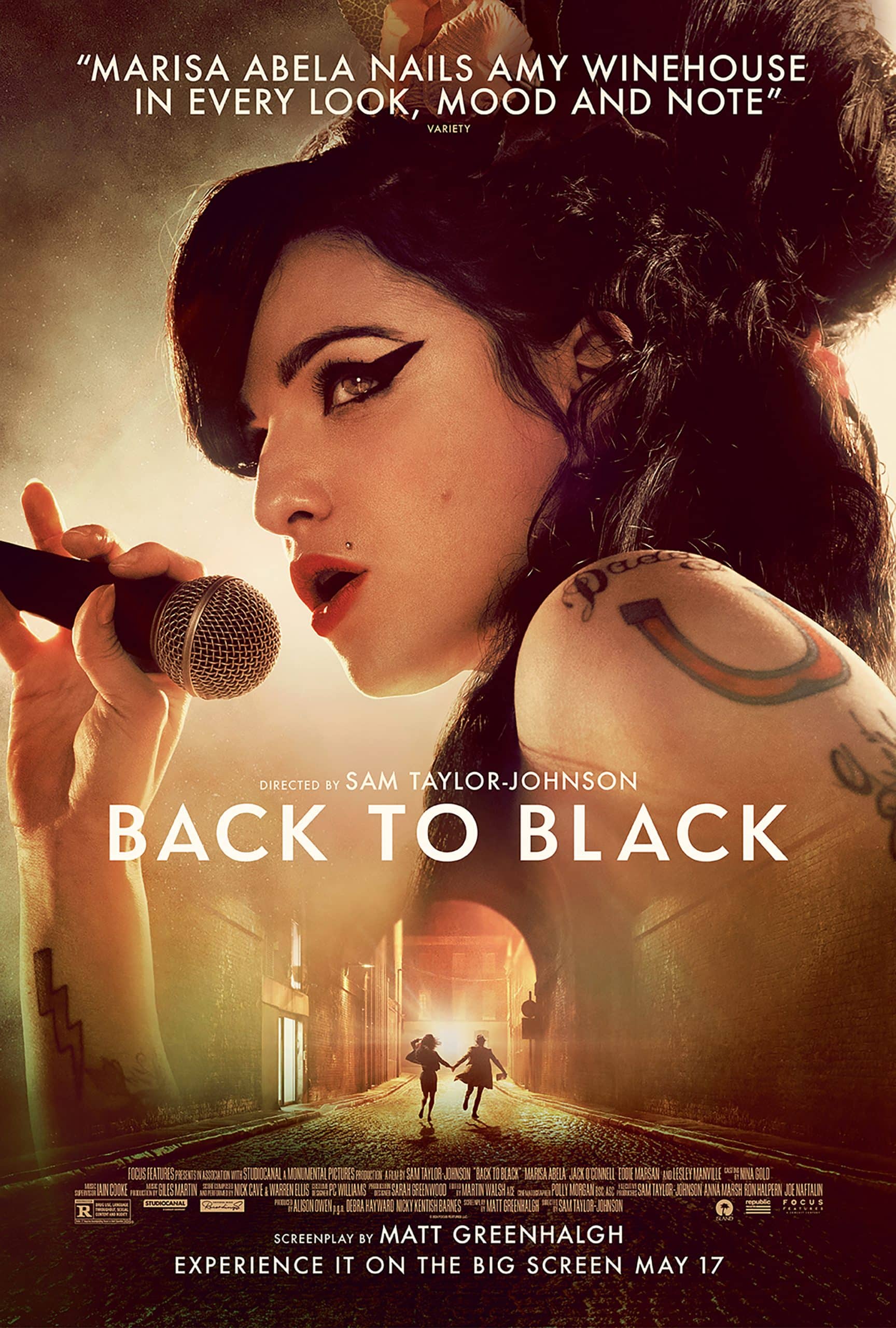
- Starring
- Marisa Abela, Jack O'Connell, Eddie Marsan
- Writer
- Matt Greenhalgh
- Director
- Sam Taylor-Johnson
- Rating
- 14A (Canada), R (United States)
- Running TIme
- 123 minutes
- Release Date
- May 17th, 2024
Overall Score
Rating Summary
When approaching the tired formula of the musical biopic, there are undeniably minor advantages to having the estate of the artist in question onboard the project. Chief among these benefits is the often-unfettered rights to the music that helped cultivate the legacy that would make such an artist’s story worth telling in the first place. There is, however, a major downside that plagues almost any musical biopic produced with the estate’s blessing: the primary concession from the filmmakers is often to avoid any material from the person’s life that would sour their image to the public and, subsequently, jeopardize the company’s beloved cash cow. Would Straight Outta Compton have been able to portray some of Dr. Dre’s more violent behaviour if the man himself weren’t a producer on the project? Would Elvis have bothered to spend any more than 30 fleeting seconds on his relationship with an underage Priscilla if Baz Luhrmann’s project weren’t so contingent on the rights to The King’s music? The answer to these questions: who’s to say, but all logic points to “yes.”
This brings us to Back to Black, in which Sam Taylor-Johnson and writer Matt Greenhalgh make the noteworthy choice to frame their subject, the beloved Amy Winehouse, as a substance-huffing, physically abusive train-wreck on a one-way path to self-destruction. (No point in giving a plot synopsis; this is standard “rise-and-fall celebrity life story” shenanigans worth no more discussion than what one would read on Wikipedia.) After the above-mentioned complaints, one would think a film that tries to have a bit more edge with its subject might be a welcomed change, but Back to Black fulfills a far more sinister agenda in service of the Winehouse estate: the film portrays Amy as a sympathetic but unsavable calamity whose fall to the depths can’t really be blamed on of her handlers. It’s a subtle position hidden in Taylor-Johnson’s pedestrian filmmaking serving as a quiet affirmation to viewers that nobody—particularly those who stand to gain from Winehouse’s success—could possibly be responsible for the circumstances that led her to such a low point.
Abela’s solid but staid performance as Winehouse carries the film across her many personal tribulations, as audiences spend far more time with her father and grandmother, played respectively by Marsan and Lesley Manville than with any of the music. (The film smartly name-drops Mark Ronson, Mr. “Uptown Funk” himself, as instrumental to Winehouse’s success, but actor Jeff Tunke’s scenes were all axed from the final cut.) On one hand, this gives Taylor-Johnson and Greenhalgh the opportunity to flesh out Winehouse as a person—”I need to live my songs,” she says—which is essentially relegated to her volatile relationship with Blake Fielder-Civil (O’Connell, trying too hard to inject some life into this film with his rigid North London accent). On the other hand, the film literally opens and closes with voiceover from Winehouse pleading that, when she dies, she wants to be remembered for her music rather than any behaviour that made her a favourite target of the blood-sucking paparazzi. Ok, so… which is it?
This imbalance would be more forgivable if the scenes that Greenhalgh did focus on gave Back to Black any dimension whatsoever in that department of personal texture, but there is nary a scene in this film that anyone couldn’t just pick up, drop into another film about someone completely different, and get away with without a hitch. This entire script, fast-forwarding through any significant developments in Winehouse’s career, is content to relegate all character development to everyone talking about how unique she is and how much she loves music. Her first encounter with Blake culminates in her flat-out describing herself as an “anachronism”… to borrow some of the local parlance, “a bit much, innit”?
In one of the scant moments of “show-don’t-tell” littered across Back to Black, Amy Winehouse is at a convenience store buying two bottles of vodka and two 20-packs of cigarettes, when a child asks for her autograph. Without giving the moment any heavy-handed focus via close-up, the decision of where Winehouse chooses to write that signature tells audiences all they need to know about her personal position at this moment in the film. Such a moment would normally constitute a victorious bout of restraint for the filmmaker—if it weren’t one of the only moments in which Sam Taylor-Johnson exhibited such—but here, it seems a microcosm for the overarching attitude of a film intent on highlighting the worst of its subject in order to ensure that those still around to profit from her best moments can do so guilt-free.
In the end, this isn’t a case of impassioned filmmakers playing ball with an estate to get the rights to the artist’s music (barely an afterthought in the film’s soundtrack, anyhow), but rather an estate commissioning a film as a desperate act of absolution. God help us when the Michael Jackson biopic drops next year…
still courtesy of Focus Features
If you liked this, please read our other reviews here and don’t forget to follow us on Twitter or Instagram or like us on Facebook.
Discover more from
Subscribe to get the latest posts sent to your email.
